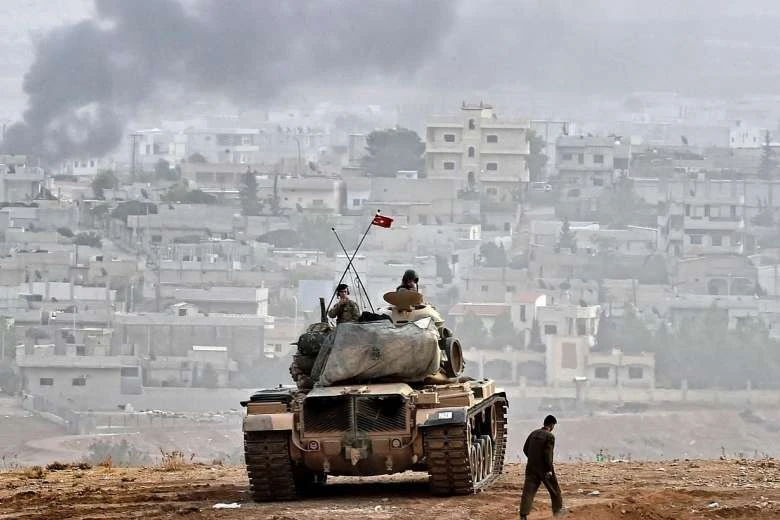After the overthrow of Bashar Assad's government in Syria, there are two important issues for the Armenian community of that country in the near future. the first is that the security of the community is guaranteed, the second is that the newly formed authorities respect both the religious and cultural rights and peculiarities of Armenians.
of "Armenpress".Zarmik Poghikyan, the editor of the Armenian weekly "Gandzasar" based in Aleppo, said this in a conversation with, talking about the situation in Syria, the moods of the citizens, including the Armenians, as well as the upcoming events.
"There are two most important problems for the Armenian community in Syria. The first is to see that the security of the community is protected, and the second is to ensure that both the religious and cultural rights and peculiarities of the community are respected by the authorities," said Poghikyan.
He informed that the situation in Aleppo is stable at the moment and, in general, the citizens are in a state of expectation, because a transitional government is still being formed in Syria.
"The situation in Aleppo is calm, there is a state of waiting. At the moment, there is no alarm in terms of food, however, there may be a shortage of medicine in the near future," Poghikyan said. presenting the current situation.
According to him, the biggest difficulty is related to the country's economic situation, and the Armenian community is trying to cooperate with various community heads and various associations in order to be useful to the Armenians of Armenia.
"We hope that this period of power flight will pass quickly and in an organized manner, so that no difficulties are created, and the people will be able to gradually return to their normal lives," Zarmik Poghikyan said. Referring to the attitude shown by the militants towards ordinary citizens in the country, Poghikyan noted that the attitude so far so positive.
"The attitude towards the people is positive so far, and they promise to respect all the components of the Syrian people. They believe that Syria, with this colorful image of the people, should move forward. They believe that everyone's rights should be protected. so far they say so.
They also promise that no religion should have any difficulties, all communities should preserve their religious and cultural identity", explained Zarmik Poghikyan, editor of the Armenian weekly "Gandzasar" published in Aleppo. Talking about the general mood in Aleppo, Poghikyan informed. that already these days 30 families have returned to Aleppo from Latakia in private cars.
"The situation in Aleppo is stable. In Latakia, for example, there were concerns yesterday, it was a certain unstable security situation, because they were in the early days in terms of the presence of the opposition.
As for Damascus, there was also an uncontrollable situation in the city in the first days when the previous government was overthrown, but when I contacted Damascus today, I learned that the situation is calm and people are quietly waiting so that as soon as possible the components of the state system should resume their activities", concluded Zarmik Poghikyan, emphasizing that everyone is in a state of waiting, but now the situation is calmer than a few days ago.
After capturing the city of Homs, the anti-government forces of Syria captured the capital Damascus on December 8 without encountering any resistance. President Bashar al-Assad had left the country, handing over power to the prime minister.
The Russian Foreign Ministry announced that Syrian President Bashar al-Assad, after negotiations with a number of participants in the Syrian conflict, decided to resign and leave Syria, ordering a peaceful transfer of power. Russian media reported that Assad and his family had arrived in Moscow and that Russia had granted them asylum on humanitarian grounds.


